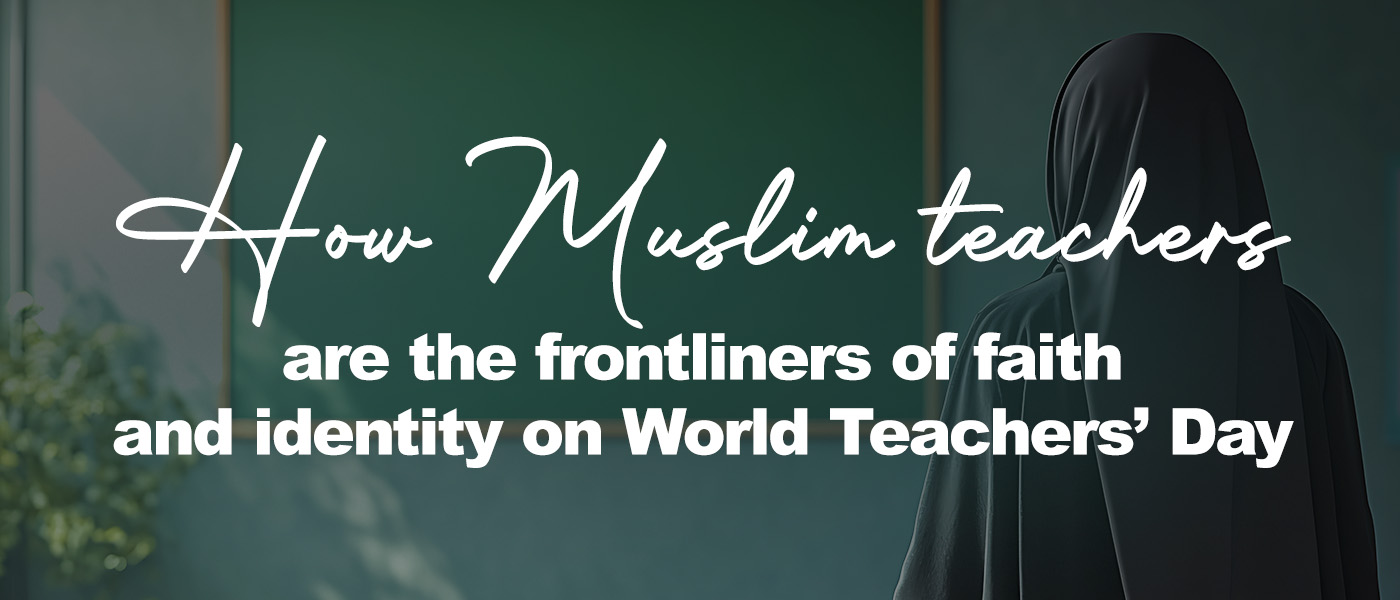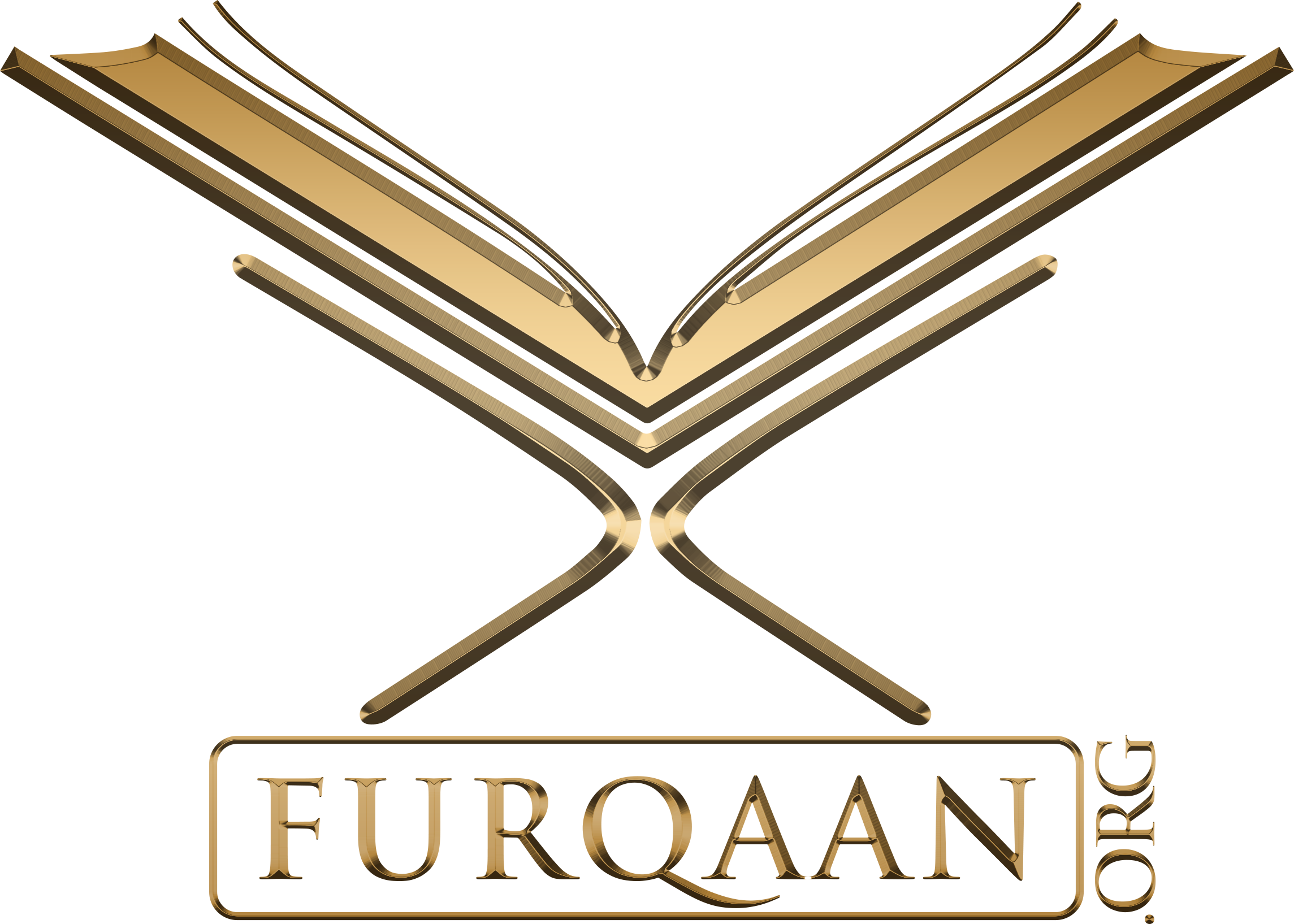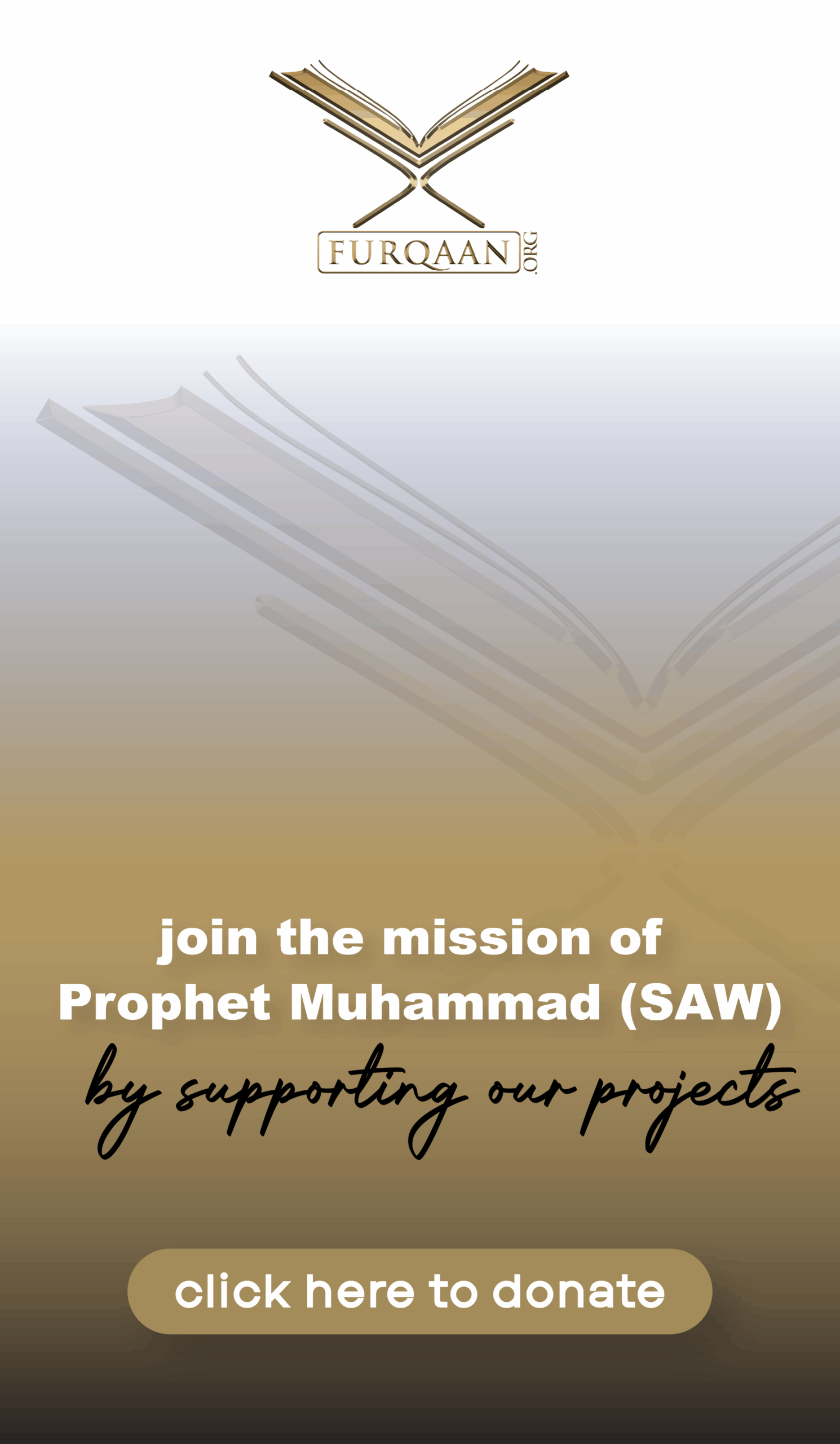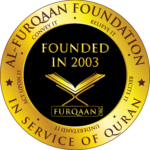
Every life begins with some form of learning. For example, before a child knows how to walk, they begin to observe the movement of the legs of the people around them. Before they speak, they listen attentively and with wide eyes at the first lessons they receive in life, of language, of conduct, of meaning, and they are always coming from someone who is older and wiser. Someone who chooses to give what they know. That person is called a teacher. A teacher is not always someone with a title before their name who sits at a wooden desk with glasses perched on their nose, and an apple in front of them. Sometimes, a teacher can look like a parent. Sometimes, they can look like a mentor. Sometimes, they can also look like an elder in the community.
In every society, in every generation, and in every corner of the world, teachers form the hidden framework of civilization. They build people, quietly and constantly. They make the future possible. Islam does not treat the roles of teachers lightly like how some communities and, unfortunately, government policies have. In fact, Islam takes it one step further and greater. It links the act of teaching with the greatest honor possible, and that is the legacy of the Prophets. In the Islamic tradition, teaching is not just a noble task, it is a sacred responsibility. It is a role that holds immense reward, lifelong dignity, and can even have spiritual consequences.
On World Teachers’ Day, we are not simply using our time and efforts to appreciate teachers, but also to remind ourselves and reflect on what it means, in Islam, to be entrusted with knowledge, and to have the responsibility on one’s shoulders to pass it on to future generations that will one day go on to change the world in a positive and powerful way.
The beginning of revelation established the unfathomable importance of knowledge in Islam
When we ask what the first building block of Islam was, many would say prayer, or monotheism, or The Quran itself. Whilst all of these are correct, as they do create the foundation of this blessed religion, none of them arrived before the very first and most critical command sent by Allah (SWT) and that was, “Read.” The first verses revealed to the Prophet Muhammad (SAW) were not about the laws of Islam, nor about the practices in which believers should partake. They were about learning. Acquiring knowledge.
The first command, “Read,” matters because it reoriented humanity’s relationship with divine knowledge. It was an invitation to engage, to inquire, and to participate. Unlike traditions in which sacred knowledge was kept hidden, restricted to a priestly class or confined to esoteric texts, Islam began with a word that implicitly democratized access to meaning. From the outset, it placed literacy, comprehension, and intellectual openness at the heart of religious life. The command came at a time and place where literacy was rare, and where oral poetry, tribal law, and inherited tradition carried more authority than written scripture. To hear, “Read,” in that context was not just startling, it was also revolutionary. The Prophet (SAW) himself was unlettered, ummi, yet he was chosen to deliver a message that emphasized reading, writing, and recording. This contradiction was deliberate. It made the source of knowledge undeniably divine, but it also signaled something far-reaching. The transformation of society would come not through inheritance, but through education.
Allah (SWT) says, “Read, O Prophet, in the Name of your Lord Who created—created humans from a clinging clot. Read! And your Lord is the Most Generous, who taught by the pen—taught humanity what they knew not.” (The Clear Quran®, 96:1-5)

The revelation of this verse marked the beginning of a civilizational ethos that places learning, reading, writing, and teaching at the very core of its faith. What stands out in these verses is not only the emphasis on knowledge, but the means through which it is acquired, which is the pen, and the teacher—”taught humanity what they knew not.” Islam doesn’t glorify ignorance. It doesn’t view blind imitation as a virtue. Instead, it calls people to think, to reflect, to question, and to sit at the feet of those who can help them understand.
In this framework, the teacher becomes much more than a transmitter of information. They become a guide to meaning, and protector of the truth.
The Prophet (SAW) is the best educator to have blessed mankind
In Islam, the honor of a profession is elevated by the people who carry it, and the greatest figure in Islamic history, the Prophet Muhammad (SAW), explicitly described himself as a teacher when he (SAW) says, “Indeed, I was sent only as a teacher.” (Sunan ibn Majah)

This statement is both humble and profound. The Prophet (SAW) led armies, governed cities, delivered revelation, and transformed the world Yet, when he (SAW) summarized his mission, and what a grand and noble mission it was, he (SAW) did so in the language of education. His classroom was everywhere, the masjid, the home, the streets, the battlefield. He (SAW) taught with speech, with silence, with patience, and with extraordinary emotional intelligence.
He (SAW) would repeat lessons three times so they could be understood. He (SAW) would bend down to answer a child’s question. He (SAW) would pause in the middle of a sermon to clarify a single point. He (SAW) would tell stories, use analogies, and ask questions that led people to discover truth for themselves. And most of all, he (SAW) taught through his character. When people left his presence, they remembered not only what he (SAW) said, but how he (SAW) made them feel. He (SAW) didn’t just teach us information, he (SAW) taught us how to live.
In The Quran, Allah (SWT) says, “He is the One Who raised for the illiterate people a messenger from among themselves—reciting to them His revelations, purifying them, and teaching them the Book and wisdom, for indeed they had previously been clearly astray—,” (The Clear Quran®, 62:2)

This verse identifies three central roles of the Prophet (SAW): reciting revelation, purifying hearts, and teaching both the text and its wisdom. In this mode, teaching is not a technical job, it is a transformative mission.
What is the maqaam (status) of teachers in The Quran and Sunnah?
Islamic scripture speaks often about knowledge, but it speaks even more powerfully about those who carry it. The Prophet (SAW) said, “The scholars are the heirs of the Prophets. And the Prophets do not leave behind gold or silver. They leave behind knowledge.” (Sunan Abi Dawud)

What does it mean to be heirs of the Prophets? It means that those who teach, especially sacred knowledge, are not just admired, they are continuing the most honored responsibility in the history of humanity.
The Quran raises the people of knowledge in status. Allah (SWT) has said, “O believers! When you are told to make room in gatherings, then do so. Allah will make room for you in His grace. And if you are told to rise, then do so. Allah will elevate those of you who are faithful, and raise those gifted with knowledge in rank. And Allah is All-Aware of what you do.” (The Clear Quran®, 58:11)

It also places the act of teaching on the path to Paradise. The Prophet (SAW) said, “Whoever treads a path seeking knowledge, Allah makes easy for him the path to Paradise.” (Sahih Muslim)
But even beyond personal reward, teachers are granted something rare, and that is a legacy that outlives them. “When a person dies, their deeds come to an end except for three: continuing charity, beneficial knowledge, or a righteous child who prays for them.” (Sahih Muslim) A lesson taught, a truth explained, a life transformed, these can never be forgotten. They remain with the teacher even after their final breath.
The centrality of education is not just a theological ideal in Islam, it was realized throughout Islamic history. From the early days of the Ummah, teachers were recognized, supported, and respected. The mosques became learning centers, the scholars became community leaders, and knowledge was transmitted with care and reverence. Great institutions like al-Qarawiyyin in Morocco, al-Azhar in Egypt, and the Nizamiyyah in Baghdad became hubs of intellectual life. They trained scholars, judges, poets, scientists, and theologians all under the guidance of dedicated teachers.
Students would travel across cities and continents just to sit with a teacher of sound character and deep knowledge. They would record not just the information they received, but the chain of transmission, the isnad, that linked them all the way back to the Prophet (SAW) through generations of teachers.
Even more remarkable is that women are also part of this tradition. Female teachers such as Lady Fatima bint Muhammad, Lady Ayesha bint Abu Bakr, and more transmitted a number of ahadith and trained countless companions. In all of this, we see that Islamic civilization was built not by swords or wealth, but by teachers.
Islamic schools and Muslim students are the blueprints of success for the next generation
In every country and in every society, Islamic schools remain among the most important institutions for shaping the identity, integrity, and spiritual resilience of the next generation. They are more than just academic spaces, they are sanctuaries of belief. For Muslim students navigating a world that often pulls them away from their values, Islamic schools offer a place to belong, to believe, and to grow in a way that integrates their faith with their future. At the center of these Islamic schools are the Muslim teachers who are embodiments of sabr, adab, tawakkul and ilm. Many of them wear multiple hats in the classroom. They are a teacher, a mentor, a counselor, and sometimes, they even become a second parent to children.
Their classrooms are a form of Dawah, and while their work may not be as appreciated outside the school walls, in the sight of Allah (SWT), it is immense. Across North America, this commitment has given rise to institutions and networks that preserve the Islamic teaching tradition while advancing excellence in education. Among them, the work of Furqaan Academy Bolingbrook, Furqaan Academy Online, and Furqaan Academy for Exceptional Children deserves particular recognition. These Islamic schools have connected teachers, trained them to the best of their abilities, supported their growth tremendously, and equipped them to educate Muslim students with wisdom and cultural clarity.
Whether in national competitions, Quran curriculum projects, or initiatives conducted by the schools to model the Sunnah and Seerah of the Prophet (SAW), these bodies reflect an unspoken truth that Muslim teachers cannot do this alone, but together, their impact is immeasurable. For parents, Islamic schools like Furqaan Academy are investments for the souls of their children. For teachers, these are places where daily work is an act of ibaadah, every lesson may count as an act of sadaqah jariyah, and this is a charity that will outlive them. For students, they are spaces of safety where identity and belief are nurtured, not compromised.
On World Teachers’ Day, as we honor those who guide hearts and shape futures, we invite you to support our mission. Please consider donating to Furqaan Academy so that we may continue empowering teachers and nurturing students with both academic excellence and a strong Islamic foundation, in shaa Allah!
Dua
Oh Allah! Make our teachers among those who have spread Your knowledge, protected Your sacred law, and called to Your path with wisdom, beautiful preaching, and patient perseverance in teaching and nurturing.
Oh Allah! Reward them on our behalf and on behalf of the seekers of knowledge, the best of what You reward one who revives the truth, extinguishes ignorance, supports Your religion, and inherits the Book and Wisdom.
Oh Allah! Raise the ranks of our teachers in this world and there Hereafter, and place them among the company of the prophets, the truthful, the martyrs, and the righteous.
Oh Allah! Place their words on the scale of good deeds, make their work a continuous charity, raise from their progeny righteous ones, and unite us with them under the banner of Your Beloved Muhammad (SAW).
Oh Allah! Make their knowledge beneficial, their remembrance honorable, their sins forgiven, their hereafter joyous, their hearts tranquil, and their faces radiant.


